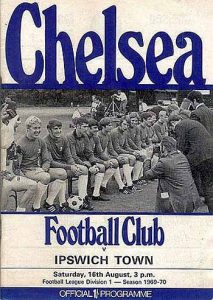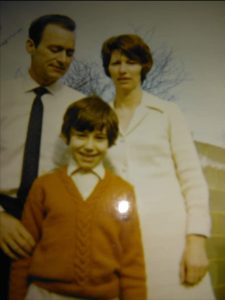Book Review: The Boy Who Saved Billy Bremner by Nicholas Dean
 The successful Don Revie era at Leeds United has been the subject of many books down the years, with the debut novel from Nicholas Dean, The Boy Who Saved Billy Bremner, a new addition to the list.
The successful Don Revie era at Leeds United has been the subject of many books down the years, with the debut novel from Nicholas Dean, The Boy Who Saved Billy Bremner, a new addition to the list.
In this offering the actual events of the 1973/74 First Division season and the Elland Road clubs tilt at the title provide a backdrop and one of the storylines within the book. And whilst the incredible run of 29 games unbeaten at the start of that campaign for Leeds is factually followed within the plot, the other football narrative, the engagement of central character, 14 year old Phillip Knott, with letters to real-life Leeds United captain Billy Bremner, is fictional.
With football very much a backdrop, readers are taken back to 1973 with the focus on the Knott family and their life in Coventry on a rundown housing estate. For people of a certain age, the descriptions of life and attitudes of the early 1970s will be a real trip down memory lane and Dean provides a convincing setting for his characters to inhabit.
Phillip is the central character, and has two siblings, an older sister and a younger brother, all with their own struggles in what is for the most part a challenging home environment. Their mother suffers from depression, which is not helped by her husband whose drinking bouts and violence are a constant dark threat waiting to explode at any moment. However, that is not to say that the book is all doom and gloom and there are moments for humour as well as tenderness and closeness within the Knott family and Phillip’s circle of friends.
The trials and tribulations of the family and Phillip himself, find their way into the letters to the Leeds skipper. And it is an interesting device used by Dean as it allows reflection on events both within the fictional life of the fanatical Leeds fan Phillip and that of Bremner and his Leeds United teammates as they embark on their unbeaten run.
With Leeds first defeat coming in their thirtieth league fixture at Stoke City, and their undefeated record gone, so the book similarly ends. There is a some resolution in the final pages but it left this reader wondering what comes next for Phillip and his family. Indeed is there a second helping continuing the story to come? However, this may be difficult given the struggles Dean had in getting this book to market.
The author was open in his interview with FBR about the struggles of getting his book published and feeling that there was no other option but to go down the independent route. As a result he was honest in accepting that this has resulted in the book, “lacking a professional touch and (containing) a few errors.” Unfortunately one of the curses of self-publication.
This book at 532 pages is a mammoth tome and but for a smaller font would undoubtedly have been pushing possibly 650 pages. The reality is that for all the wonderful detail and description contained within its pages, the professional services of a proof-reader and editor would clearly have benefited the text, especially in the reduction in the overuse of similes. However, this isn’t a criticism of the book but is a further example that independent writers can be victims of their own circumstances when not supported by a publisher and the services they commsnd.
Despite all this, there is much to admire about The Boy Who Saved Billy Bremner, and for this reader Dean has achieved what he set out to do in , “people liking the book”.
(Publisher: Independently published. July 2022. Paperback: 532 pages)
Buy the book here: The Boy Who Saved Billy Bremner
 Saturday 16th August 1969, my Dad, Uncle Jim, and me walking down the Kings Road – the 6 year old me staring agog at the huge amounts of men and boys around me all moving in one direction.
Saturday 16th August 1969, my Dad, Uncle Jim, and me walking down the Kings Road – the 6 year old me staring agog at the huge amounts of men and boys around me all moving in one direction.

